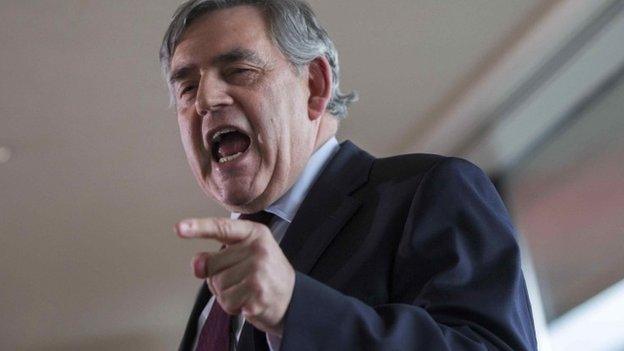Labour leadership: Party makes legal checks over contest
- Published
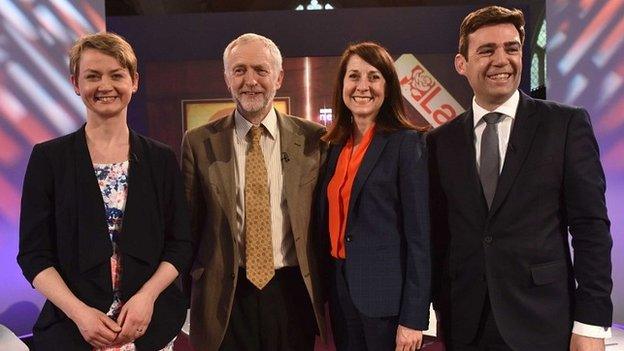
The Labour Party has made legal checks to ensure its leadership contest is complying with the law and try to avoid challenges to the result.
New regulations allow members of the public to sign up to vote as a "registered supporter" for £3.
The contest has been plagued by concerns that members of other parties have tried to influence the outcome.
A spokeswoman for acting leader Harriet Harman rejected any suggestion of plans to halt or suspend the election.
The spokeswoman said: "The party's focus is on making sure that the 2014 rules are fully complied with.
"We have taken legal advice to make sure that the rules are being complied with and that all due diligence as possible was being done.
"But there were no plans to halt or suspend the contest. We keep a close eye on the process."
'Tradition of support'
A Labour spokeswoman said a Conservative activist who had paid £1 to join the Labour Party - under a discounted rate for former members of the armed forces - had been barred and would not get a vote in the leadership contest.
Alan Pearmain, a parish councillor and deputy chairman of the South Ribble Conservative Association, told the BBC's Victoria Derbyshire programme he had joined as a bit of "mischief-making".
Meanwhile, Scotland's Daily Record has given its backing, external in the leadership race to left-winger Jeremy Corbyn.

Labour leadership contest
Who are the candidates? Andy Burnham, Yvette Cooper, Jeremy Corbyn, Liz Kendall
Dates: Ballot papers were sent out on 14 August; voting can take place by post or online. They must be returned by 10 September. The result is announced on 12 September
Who can vote? All party members, registered supporters and affiliated supporters - including those joining via a union. More than 160,000 people signed up to vote as supporters, full members or union affiliates in the final days before the registration deadline, bringing the total size of the electorate to 610,000
What is the voting system? The Alternative Vote system is being used, with voters asked to rank candidates in order of preference
How does it work? If no candidate wins outright with more than 50% of first preferences, whoever is in fourth place drops out and the second preferences of their backers are reallocated to the other candidates. If there is still no winner the third placed candidate is then eliminated with their second preferences similarly reallocated. The candidate who has accumulated the most votes through the different rounds then wins.

The newspaper's front-page endorsement comes a week after its sister paper - the Daily Mirror - backed Andy Burnham, external.
• Everything you need to know about the four candidates hoping to become the next Labour leader.
Mr Corbyn said: "I'm obviously pleased to have the backing of a paper that has such a long tradition of support for the Labour Party.
"I'm sure that, at least in part, this endorsement will have been made with Labour's future in Scotland in mind, which is important as Labour has a real need to reconnect with communities in Scotland if we are to succeed across the UK."
Meanwhile, former Home Secretary David Blunkett - who is backing Andy Burnham for the leadership - has added his voice to the other senior Labour figures warning about a Corbyn victory.
He told BBC Radio 4's Today programme: "Jeremy Corbyn has not only been good at opposition against the Tories, he's also been profoundly good at opposition against my party".
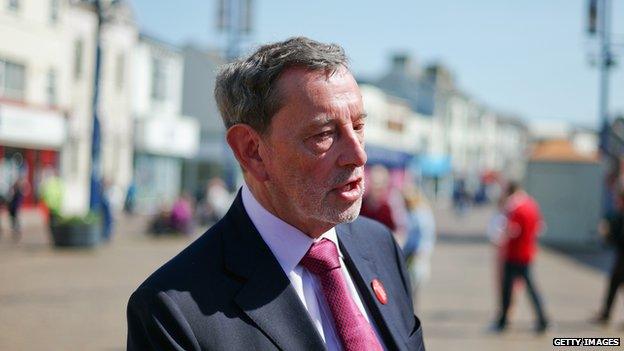
David Blunkett is the latest Labour figure to warn against Jeremy Corbyn
"If you want to continue being in opposition, vote for somebody who is good at opposition," he added.
Mr Blunkett said he wanted "somebody who can actually address the world of tomorrow rather than taking us back to Old Labour or, for that matter, New Labour in the 90s, because we are addressing an entirely different world".
System criticised
Sarah Brown, the wife of former Prime Minister Gordon, has meanwhile backed Yvette Cooper for the leadership, with Andy Burnham as her second choice.
Opinion polls suggest Ms Cooper is locked in a battle with Mr Burnham to emerge as the main challenger to Mr Corbyn, with Liz Kendall trailing in fourth place.
Mr Burnham, Yvette Cooper and Liz Kendall are battling against Mr Corbyn in the contest.
Former Labour leader Ed Miliband has faced calls to apologise for the voting system being used to elect his successor.
The change from an electoral college system, which gave equal weight to MPs, party members and trade unionists, to "one member, one vote," with the public allowed to join as registered supporters for £3, was overwhelmingly backed by a special Labour conference last year.
But critics, including backbench Labour MPs Simon Danczuk and Graham Stringer, say the new system was too open to abuse.
The result of the election will be announced at a special conference on September 12.
- Published18 August 2015
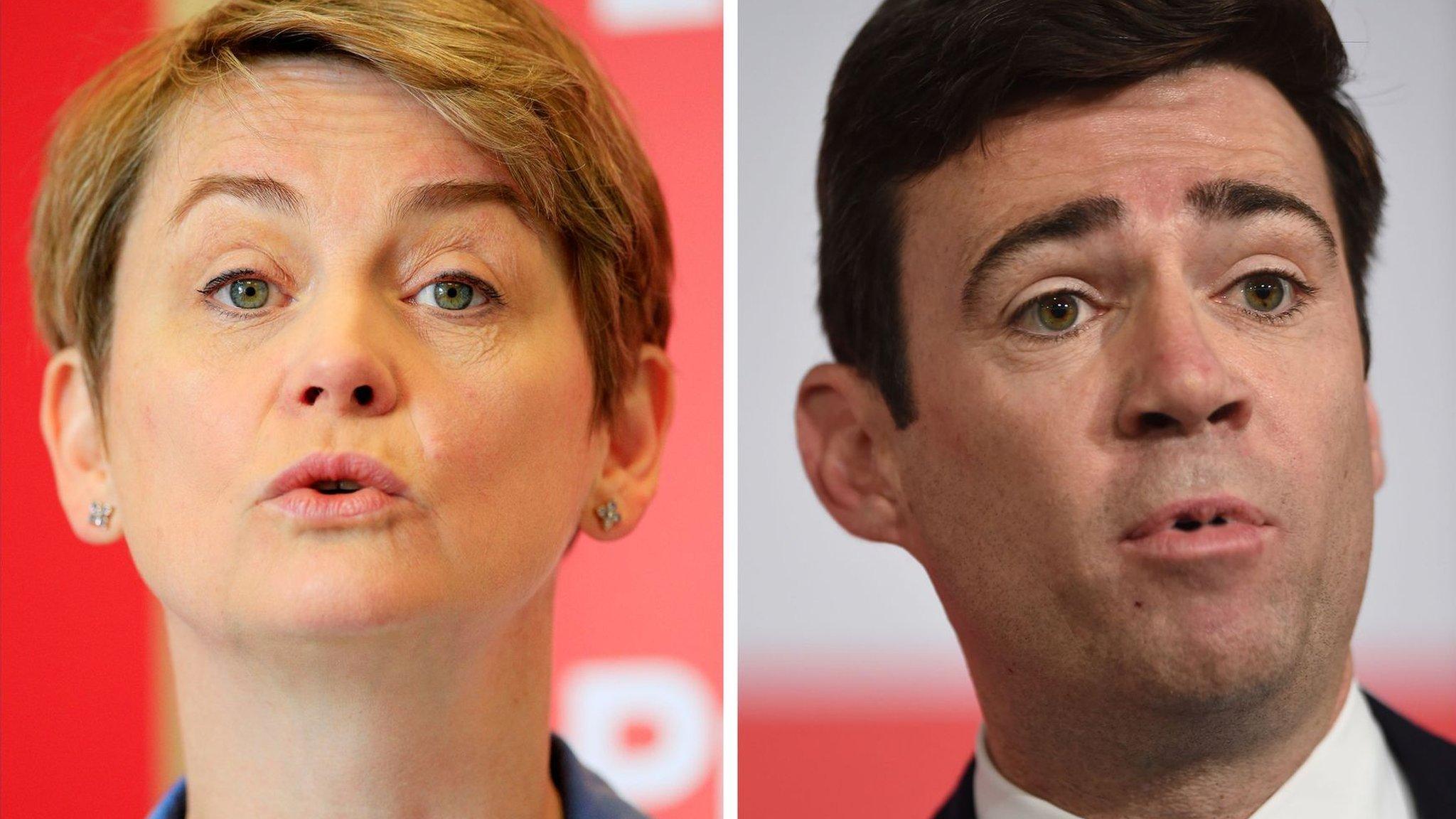
- Published18 August 2015
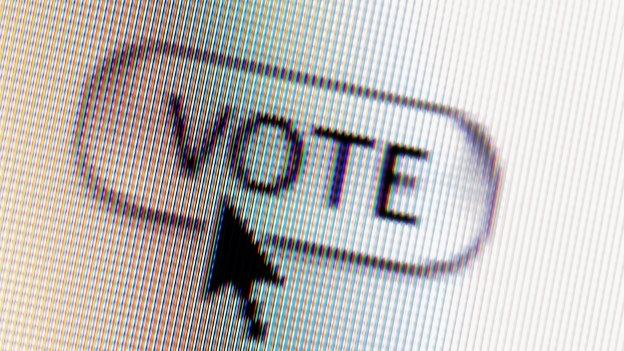
- Published17 August 2015
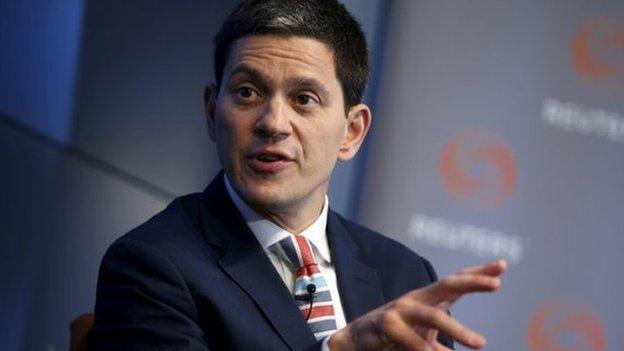
- Published17 August 2015
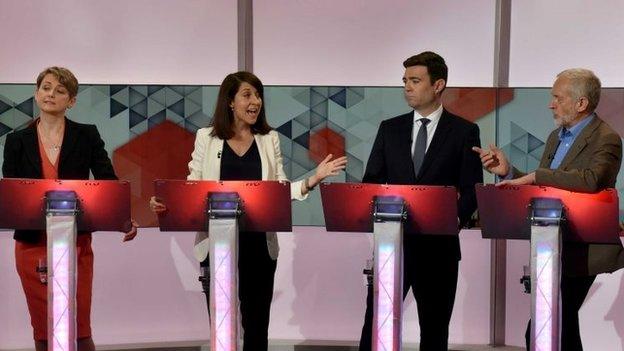
- Published16 August 2015
